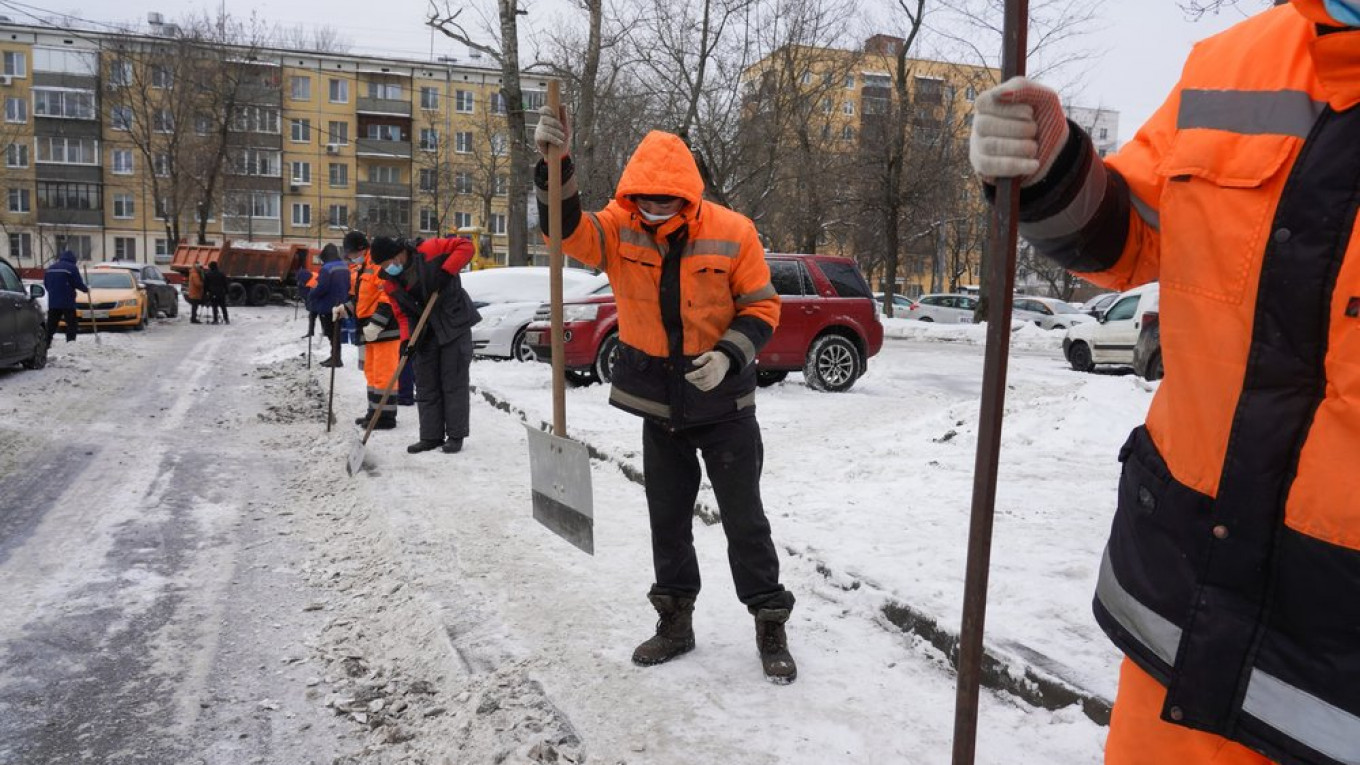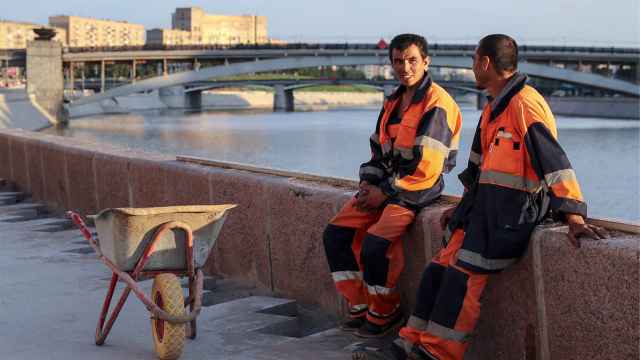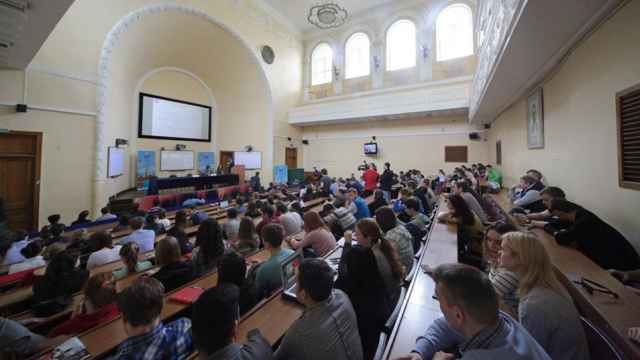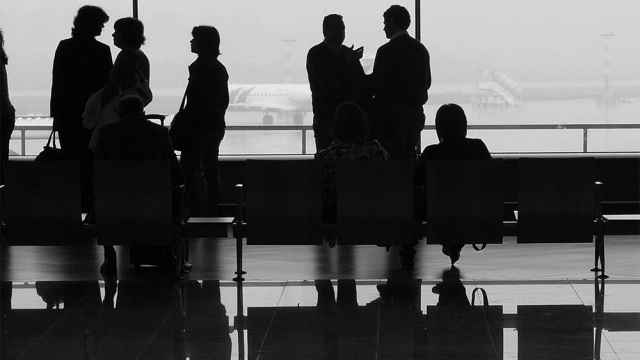Russia said Wednesday it was looking to simplify entry requirements for migrant workers, to aid industries like construction and agriculture that are facing labor shortages due to the pandemic.
Moscow announced border closures in spring last year to curb the spread of the coronavirus, prompting thousands of migrant workers, mostly from ex-Soviet countries in Central Asia, to hastily return home.
Russia has now opened its borders to several dozen countries but international flights are infrequent and most foreigners are still barred from entering.
The interior ministry estimated last year that close to half of all migrants living in Russia before the pandemic had left the country.
Kremlin spokesman Dmitry Peskov told journalists Wednesday that the government is "actively discussing" simplifying entry procedures to help labor shortages in agriculture.
Peskov added that the issue has "also been raised in the construction sector" where there is a growing demand for workers.
Business daily RBC reported Wednesday that the Agriculture Ministry filed a request to allow migrants to enter Russia for seasonal agricultural work in 2021, with farmers worried about a lack of skilled local labor.
In a statement quoted by TASS state news agency, the ministry said it was planning to release 184 million rubles ($2.5 million) to help farmers meet the costs of additional recruitment.
These subsidies are intended in particular to finance hiring and housing of local agriculture students, who would be available to work in the summer.
The sudden flight cancellations in the spring left hundreds of migrant workers from Central Asia stranded in Russian airports and in border towns for several days.
Hundreds of thousands of migrants live in Russia and their salary transfers are essential for the economies of several Central Asian countries.
Migrant workers were among the worst-hit by the Covid-19 crisis in Russia, with one survey showing that three in four lost their source of income during the pandemic.
A Message from The Moscow Times:
Dear readers,
We are facing unprecedented challenges. Russia's Prosecutor General's Office has designated The Moscow Times as an "undesirable" organization, criminalizing our work and putting our staff at risk of prosecution. This follows our earlier unjust labeling as a "foreign agent."
These actions are direct attempts to silence independent journalism in Russia. The authorities claim our work "discredits the decisions of the Russian leadership." We see things differently: we strive to provide accurate, unbiased reporting on Russia.
We, the journalists of The Moscow Times, refuse to be silenced. But to continue our work, we need your help.
Your support, no matter how small, makes a world of difference. If you can, please support us monthly starting from just $2. It's quick to set up, and every contribution makes a significant impact.
By supporting The Moscow Times, you're defending open, independent journalism in the face of repression. Thank you for standing with us.
Remind me later.






